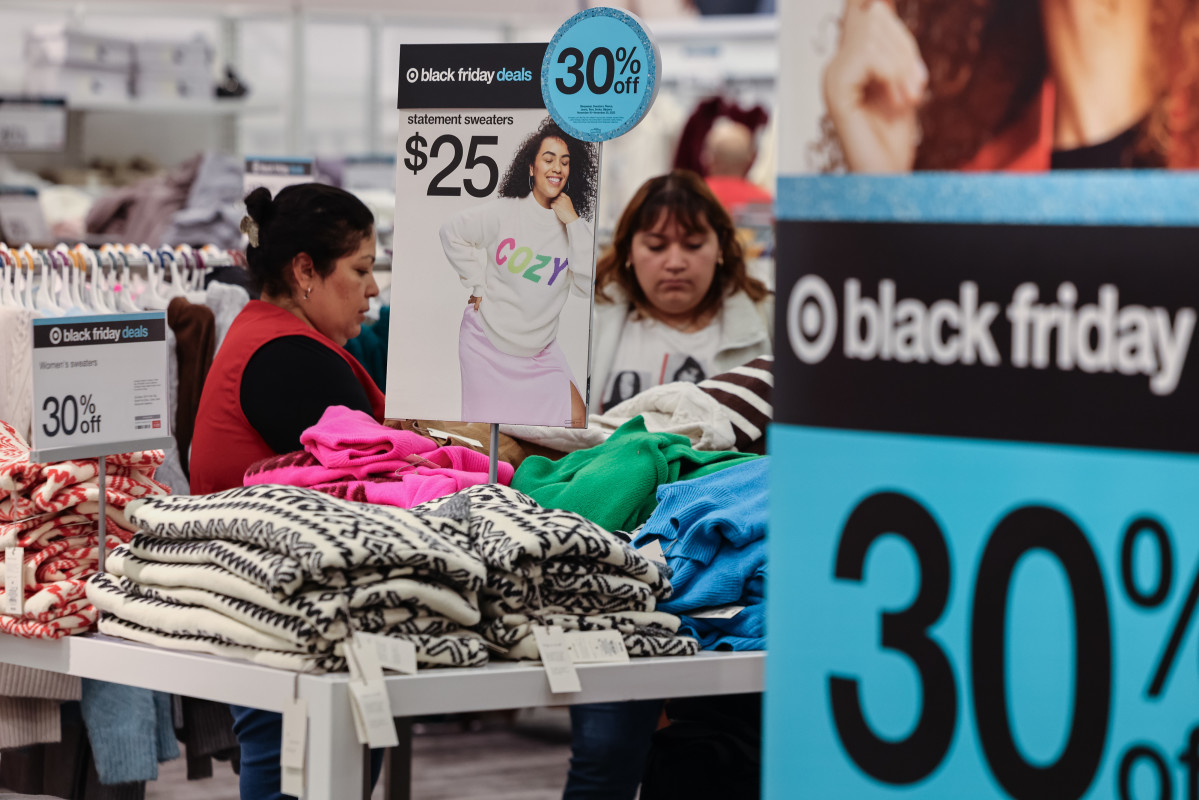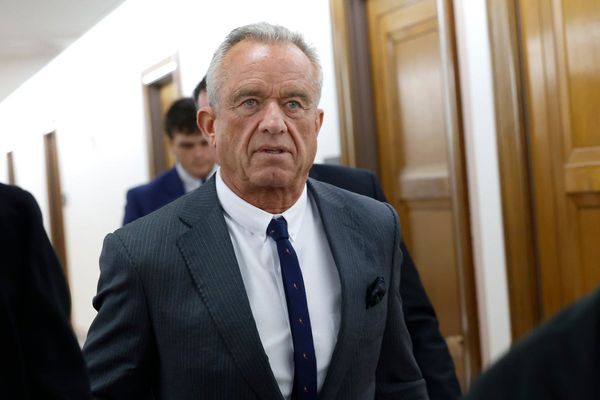
A lot of people have complained that this year's Black Friday deals did not compare to those of the past. But results have shown that consumers didn't seem to care.
Black Friday online sales hit a record $9.7 billion across the US, up 7.5% versus last year, according to a report by Adobe Analytics. In-person sales saw a minor 1% uptick in growth as well despite the rising prices and consumer frustration about Black Friday sale prices being similar to regular day sales prices.
One TikTok user even showed how one Target (TGT) -) store had tried to mask its normal discounts as a Black Friday discounted price by simply changing the style of some of its signs.
The fall of Black Friday has been amazing to watch in real time. pic.twitter.com/yas7ZvezZl
— BIG DASHER 🦌🎄 (@waco_warren) November 25, 2023
Related: Amazon tries to fix another major customer pain point
But online sales purchases have really driven the continued success of Black Friday sales. While the deals may not necessarily be the same as the massive 80% and 90% discounts that created the lore around Black Friday in the past, Adobe Digital Insights lead analyst told CNBC that online shopping allows consumers an easier time to compare prices across retailers.
Amazon reaped the benefits of the online sales wave on Black Friday as Beryl Tomay, Amazon's Last Mile Delivery & Tech vice president told CNBC's Squawk Box that this year was the company's "high sales, most items sold Black Friday in our entire history."
She pointed out that Amazon averaged 1,000 items sold per second on Friday.
Adobe expects Cyber Monday to also hit record sales, but the rise in sales during these days doesn't necessarily indicate a booming economy. Pandaya told CNBC that consumers are "very strategic" and trying to maximize their purchases on these "marquee days."
Consumers seem to be using a different strategy instead: purchasing what they can now during sales days and paying when they have the money later on.
The "Buy Now, Pay Later" option is up 47% from last year, though the $79 million in sales done with this method represents less than 1% of just the online Black Friday sales.
Retailers are also facing a hit in another revenue driver despite the positive sales: store-branded credit cards.
Cards with brands from private labels were down 37% in 2022 versus 2015, according to a report by the Wall Street Journal, while general credit cards grew 33%.
The report indicated that this could be due to lower consumer demand as well as rising interest rates, especially as branded credit cards average interest rate is at 28.9% against 21.2% for general credit cards.
The online shopping shift has also hurt the push for these store-branded cards as many of the sales of these come during in-store interactions when customers are enticed to sign up for the cards at the register.
Branded credit card sales were down 31% for Macy's and 10% for Target in the latest quarter versus last year.
The WSJ also reported that consumer loyalty to specific retailers is down which has likely affected the desire for consumers to sign up for store-branded cards that could limit their flexibility for purchase.
Get investment guidance from trusted portfolio managers without the management fees. Sign up for Action Alerts PLUS now.







